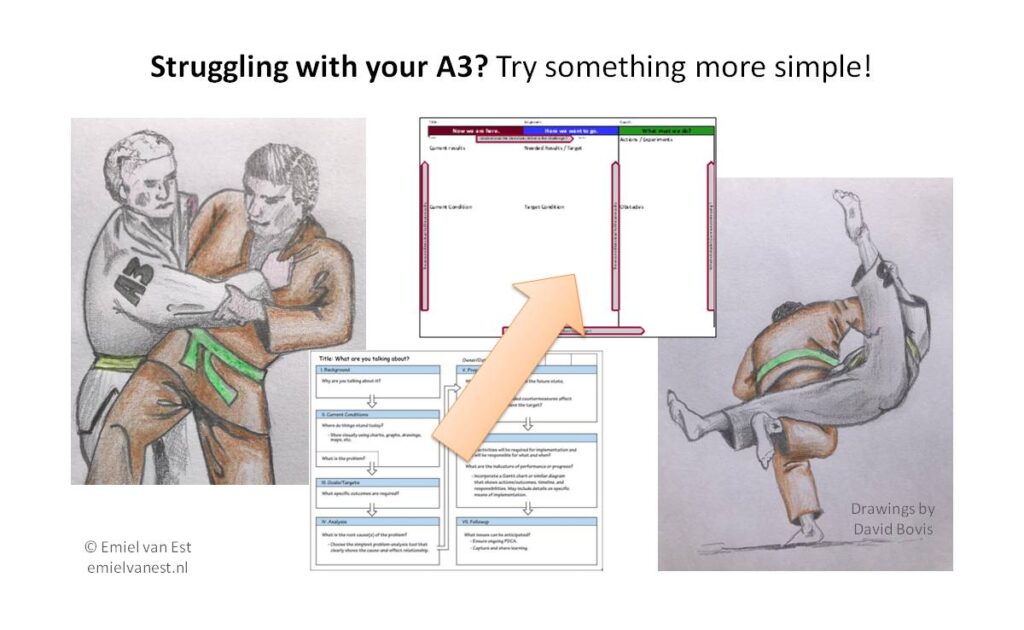Creating an A3 is a commonly used problem solving method. It is a way of working that is widely used at Toyota and is therefore popular in Lean trainings and Lean trajectories.

It is often a struggle
A few years ago I supervised a number of students who were working on their Lean Management Minor. What a struggle. How many times have I thought to teach them an alternative, Toyota Kata based approach. That works so much easier. But of course that was not in the curriculum. An A3 had to be made.
I also see the same kind of struggle in organizations. A lot of time is spent creating an A3 in an attempt to get an entire project plan on one sheet of paper. And soon fonts are reduced in size…
Despite the good intentions, it does not always bring the desired progress. If we are not careful, we spend more time creating the A3 than actually looking for solutions to the problem.
Often the form is more important than the content …
See also: https://www.emielvanest.nl/form-follows-function/
Solving problems is hard enough. It is therefore important that making an A3 does not divert attention from actually solving the problem.
Don’t get me wrong, making an A3 is a great way to gain insight and share information about the problem to be solved, but it takes some practice to get it right.
If you do not yet have that much experience or if you do not receive enough guidance, it quickly becomes (too) difficult.
It can be (much) simpler
There is a much more accessible way to learn how to solve problems. It is based on Mike Rother’s Toyota Kata Storyboard and it also fits on a A3 sized piece of paper. I added some twists to it and wrote a manual how to use it.
This way of working has multiple advantages
- You can start with the existing narrative
- It helps to see what is already there.
- It helps to see what’s still missing.
- It helps to see what is unnecessary.
- It helps to determine the best question to ask at any given time.
The interaction becomes much more natural and as a manager you almost automatically take on a more coaching role.
And, you can also it in meetings to organize notes and ask great questions.
Eduardo Muniz says
It is simpler just make critical thinkibg questions to get quality data to reach quality conclusions